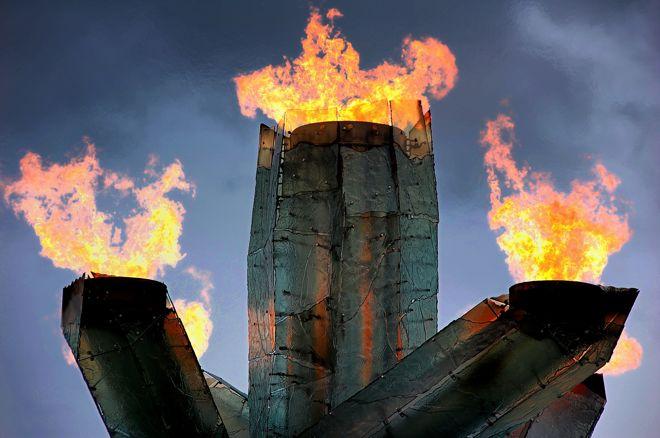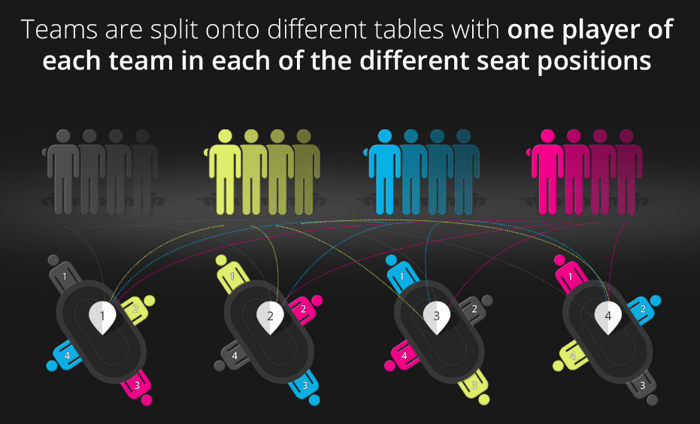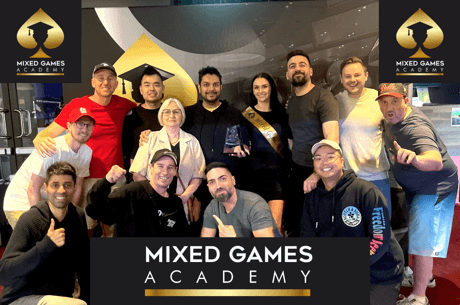'Match' Poker Among Newly Recognized Sports on Path to Olympics

Many poker players find themselves having to explain to those outside of the poker community how their beloved game is different from other forms of gambling. Indeed, many of the game’s best report having had to justify to family members dropping out of college or quitting a full-time job to become professional poker players. "It’s a skill game, I promise, mom!"
Recent news may help the non-poker world understand the level of skill that plays into poker, as compared with other forms of gambling, with the Global Association of International Sports Federations' (GAISF) Oct. 2 announcement that a specific type of poker, “match” poker, has gained recognition as a sport and will be eligible for review for becoming an official Olympic sport.
Joining match poker in the newly recognized sports are pole-dancing, dodgeball, foosball (table soccer), arm wrestling, foot golf and kettlebell lifting. One can see that the Olympics may be trying to keep pace with the times.
Process for Adding New Sports
Sports are added and removed from the list of official Olympic events with relative frequency. Golf and rugby were recent additions to the official list of Olympic sports, debuting in the 2016 and 2020 summer Olympics. Joining them for the Tokyo 2020 Games are returning sports baseball and softball as well as karate, skateboarding, rock climbing and surfing, which will all be making their Olympic debut.
The GAISF’s recent announcement of the newest seven sports to be granted “observer” status is a huge leap for those organizations, but it is still only one step that a sport must achieve on its way to incorporation into the Olympic “programme.”
GAISF President Patrick Baumann said in the announcement, “We warmly welcome our first Observers. This is an exciting time for them and for us and we will do everything within our remit to help them realise their full potential as International Federations within the global sport’s family and, one day, maybe become part of the Olympic program. The new sports debuting at Tokyo 2020 and at the Buenos Aires Youth Olympics are evidence that the pathway is there.”
The next step is for the Olympic Programme Commission, within the International Olympic Committee (IOC), to review the sports on the program as well as the non-Olympic recognized sports. Based on seven criteria, the commission decides which sports, if any, should be added to the official Olympic Programme.
According to the IOC, these criteria include history and tradition of the sport, universality, popularity of the sport, image, athletes' health, development of the International Federation that governs the sport, and costs of holding the sport.
Based on these criteria, one could see how poker’s day to become an internationally recognized and respected sport and be played on the prestigious Olympic stage could be relatively near. But while the observer status is a promising step, poker likely still has a ways to go.
Match Poker
While most people do understand that there is plenty of skill involved in poker, no one can deny the short-term luck factor especially in tournament poker, which notoriously has higher variance than cash games. One reason for that is the fact that the way the cards fall in specific hands dealt, especially at final tables where the chip stacks get more and more shallow compared to the increasing blinds, will be a major factor in the outcome of the contest.
The International Federation of Poker (IFP) was established in Switzerland in 2009 to house the Olympic movement. Their aim is to reduce the luck element of poker thereby promoting poker as a ‘mind-sport of strategic skill.’
How it Works
To minimize the luck factor, the IFP uses digital technology in its “Match Poker” variation, which involves the traditional game of no-limit Texas hold’em with some twists. The game is played with a pot-limit pre-flop and no-limit post-flop structure and it is a team sport.

Players on each four-person team are seated at different electronic tables in a different seat, playing against three players from other teams. At each table, the hole cards and the community cards dealt will be exactly the same.
All players start each hand with the same amount of chips and after each hand, each team’s combined chips are calculated, points are allocated, and chips are replenished before the next hand begins. After a set number of hands, automated scoring and detailed analysis is used to determine the best teams and players.
Olympic Dreams
With more than 55 member nations from five separate continents, the IFP has seen increased international success, seemingly improving the sport’s chances of becoming an official Olympic sport based on the seven aforementioned criteria.
While it may be some time before we watch the game play out on the Olympic stage, the IFP’s continuing success coupled with newly announced support from the GAISF could take the game of poker to new popularity heights previously unimagined.
According to Mr. Espinos, Chairman of the Membership Commission, “GAISF supports a diverse and evolving sports ecosystem and the newly created Observer Status is central to this. Sport is constantly evolving, mirroring the world we live in and the Observer Status provides the opening many IFs representing new sports require to enable them to gain legitimacy and flourish. The Commission’s role is to support all those who qualify and have the potential to raise their sport to the next level and join all other GAISF members.”
Could GAISF’s support springboard the IFP and match poker to the Olympic level? Time will tell, and PokerNews will be on hand to keep you posted on new developments.








